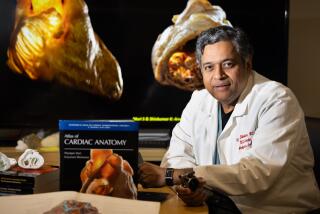A bookŌĆÖs inscription and Jewish tragedy
During a trip to Israel earlier this month, I stopped in SteinŌĆÖs secondhand bookshop on King George Street in Jerusalem.
SteinŌĆÖs occupies a very special place in IsraelŌĆÖs Central European heritage. When the Jews of Frankfurt, Vienna, Berlin and Linz fled to Palestine to escape the Nazis in the 1930s, many left in time to ship their furniture and books with them. Others, who escaped later, fled with only a suitcase or two. But even then, being Central European Jews -- among the most well read and highly educated people in all of Europe -- they often brought their precious books along. Goethe and Schiller, Heine and Lessing.
Over the decades, as these German and Austrian Jewish refugees have grown old and died in Israel, their children and grandchildren -- most of whom do not read German -- have brought their books to SteinŌĆÖs by the box load.
A visit to SteinŌĆÖs always provides a glimpse of another era. It was while perusing the books there a couple of weeks ago that I came upon a volume of essays by Leo Baeck, who was GermanyŌĆÖs most famous reform rabbi during the early 20th century.
Opening the book, I found this handwritten inscription: ŌĆ£To my darling Richard on his bar mitzvah, 11 September 1926, Papa.ŌĆØ
Because Jewish boys are bar mitzvahed at 13, this Richard must have been born somewhere in Germany in 1913, the year before World War I began. The kaiser ruled the land then, and men like Albert Einstein, Paul Ehrlich, James Franck and Fritz Haber were doing the scientific research that had brought them, or would bring them, Nobel prizes in GermanyŌĆÖs name. All of them were Jewish. All would be disowned by the Nazis or have their biographies rewritten.
It is quite possible that, like a great many of GermanyŌĆÖs Jews, Richard didnŌĆÖt make it out until 1939, the year German emigration to Palestine reached its peak. Richard would have been 26 years old by then.
Did Papa go with him? ThereŌĆÖs a good chance that he did not. Many parents stayed behind to watch after the family property, and to hold on to all they had built, hoping things wouldnŌĆÖt get too much worse. ThereŌĆÖs a good chance that Papa had served his country faithfully in World War I: 90,000 Jewish men donned the German armyŌĆÖs uniform between 1914 and 1918, and 10,000 fell fighting for their fatherland. Papa probably would have felt that no one would dare come after a German war veteran, a patriot such as he. He might have even felt that way until the knock came at the door.
All we know (or can surmise) is that Richard brought this memento of German Jewry -- and of his father -- with him to Palestine. But there is so much more weŌĆÖd like to know. Was Richard married when, in 1948, the state of Israel came into being? Did he build a life in the new country that made him happy? Did he have children? Grandchildren? And were they the ones who brought the book to SteinŌĆÖs?
Today marks the 65th anniversary of the liberation of Auschwitz-Birkenau, when Soviet troops entered this most infamous of the Nazi death camps to find only a few thousand emaciated survivors. More than 1.5 million Jews were murdered there. An additional 4 1/2 million met their end elsewhere by firing squad, in gas vans or in the other Nazi-built death camps.
For the past 10 years, the Jewish historical project I direct has been involved in an oral history project with Holocaust survivors. Unlike the many excellent projects that use video to record the horror stories of what people went through during the war, we have set ourselves a different task. We are interested in how people lived before and after the horrors.
Our subjects have allowed us to scan their old family pictures and documents, which they then go through with our researchers and talk about. So far, we have archived more than 22,000 snapshots, school report cards, wedding portraits and vacation pictures, and weŌĆÖve collected an array of stories to accompany them. We have memorabilia, but unlike with the book I found in SteinŌĆÖs, we also have context, the complete stories of what a book or photograph or document meant to those who preserved it.
Every Jan. 27, we remember why we have done this: so that the stories of an entire century -- as told by those whose entire world has been destroyed -- will not be lost to us.
Edward Serotta directs the Jewish historical institute Centropa in Vienna (centropa.org).
More to Read
Sign up for our Book Club newsletter
Get the latest news, events and more from the Los Angeles Times Book Club, and help us get L.A. reading and talking.
You may occasionally receive promotional content from the Los Angeles Times.









